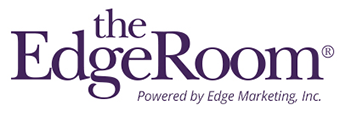by Mary Obregon
When working with clients, we see a lot of common questions about using LinkedIn for strategic growth. Many people and companies are on this platform, and many are looking for answers on using it to its full potential. Here are some of the top questions that clients ask when it comes to leveraging LinkedIn for marketing:
- What kind of company policies or requirements should be in place?
When implementing LinkedIn marketing strategies, it is important to have certain company policies and requirements in place to ensure effective and compliant use of the platform. Some key policies and requirements to consider are:
- Content guidelines
- Employee guidelines
- Data protection and privacy
- Compliance with LinkedIn terms of service
- Intellectual property rights
- Employee advocacy guidelines
- Compliance with advertising regulations
- Monitoring and response protocols
- Performance metrics and reporting
- Continuous education and training
Consulting with legal and compliance teams will ensure that your company policies and requirements align with applicable laws and regulations. Additionally, regularly review and update your policies to reflect changes in LinkedIn’s features and guidelines, as well as any evolving legal or industry requirements.
- Is social media amplification software effective?
The use of amplification software on LinkedIn is a topic of debate. While some people may argue that it can help you expand your network and reach, others view it as an unethical practice that can potentially harm your professional reputation. It is important to consider the platform’s terms of service and community guidelines, as employing automation software may violate those rules. Instead of relying on amplification software, it’s generally recommended to focus on building authentic relationships on LinkedIn. Engage with content that genuinely interests you; contribute meaningful comments; and connect with individuals you genuinely want to engage with professionally.
Should a company decide to implement amplification software anyway, understand that it will only pull content that already exists online rather than provide original content crafted by marketing. Imagine a negative review or nonfavorable piece of content getting queued up for posting by your amplification software and then blindly getting shared by staff to an exponential number of followers. Even with heavy monitoring, the risks don’t outweigh the reward.
- What size of company is best for amplification software?
The decision to use amplification software for marketing purposes is not primarily determined by the size of the company, but rather by the specific marketing goals, strategies and ethical considerations of the organization. A professional marketer who knows how to optimize your content to the right audience and can help solidify marketing goals may be more effective than amplification software. And a professional could also help determine whether amplification marketing would benefit the company.
- What are the different subscription levels within LinkedIn? Which do you recommend?
LinkedIn offers several subscription levels for users:
- LinkedIn Basic (Free): This is the standard account level that provides basic features such as creating a profile, connecting with other professionals and accessing limited job search features.
- LinkedIn Premium Career: This subscription is focused on job seekers and provides enhanced features for career development, including advanced job search filters, InMail credits to message recruiters directly and access to LinkedIn Learning courses.
- LinkedIn Premium Business: This subscription is designed for professionals and businesses looking to expand their network and generate leads. It offers additional features such as advanced search filters, access to insights and analytics and the ability to send InMail messages to any LinkedIn member.
- LinkedIn Sales Navigator: This subscription is tailored specifically for sales professionals. It provides advanced lead generation and sales prospecting tools, including lead recommendations, advanced search filters, CRM integration and real-time updates on prospects.
For marketing, the recommended subscription level would depend on the specific goals and requirements of the company. If the focus is on personal branding, networking and job opportunities, LinkedIn Premium Career would be suitable. If the objective is to expand the reach, generate leads and analyze campaign performance, LinkedIn Premium or LinkedIn Sales Navigator would be more appropriate. It is recommended to evaluate the features and pricing of each subscription level to determine which one aligns best with your marketing objectives and budget.
- What have you seen as successful in terms of gaining followers?
After working with many clients over the years, and adapting to the changing times, we have developed and implemented strategies and tactics to help businesses grow by leveraging LinkedIn. We have crafted campaigns for organic follower growth and sponsored content leads and have seen exceptional results. When utilizing LinkedIn’s hypertargeting capabilities and carefully crafting content that resonates with that audience, the results flourish.
There are so many questions when it comes to LinkedIn. As things only continue to rapidly change and accelerate, it is important to keep up with the trends and use them to your advantage. With the help of experts like our seasoned marketers here at Edge, there is no doubt that your business will blossom.
About the Author
Mary Obregon joined the Edge team in September 2020, amid the pandemic, in order to gain experience in the field by any means. Mary is now HubSpot certified, Yoast certified and Google Analytics certified!
When not working, Mary is most likely spending time with friends, family or her boyfriend.



